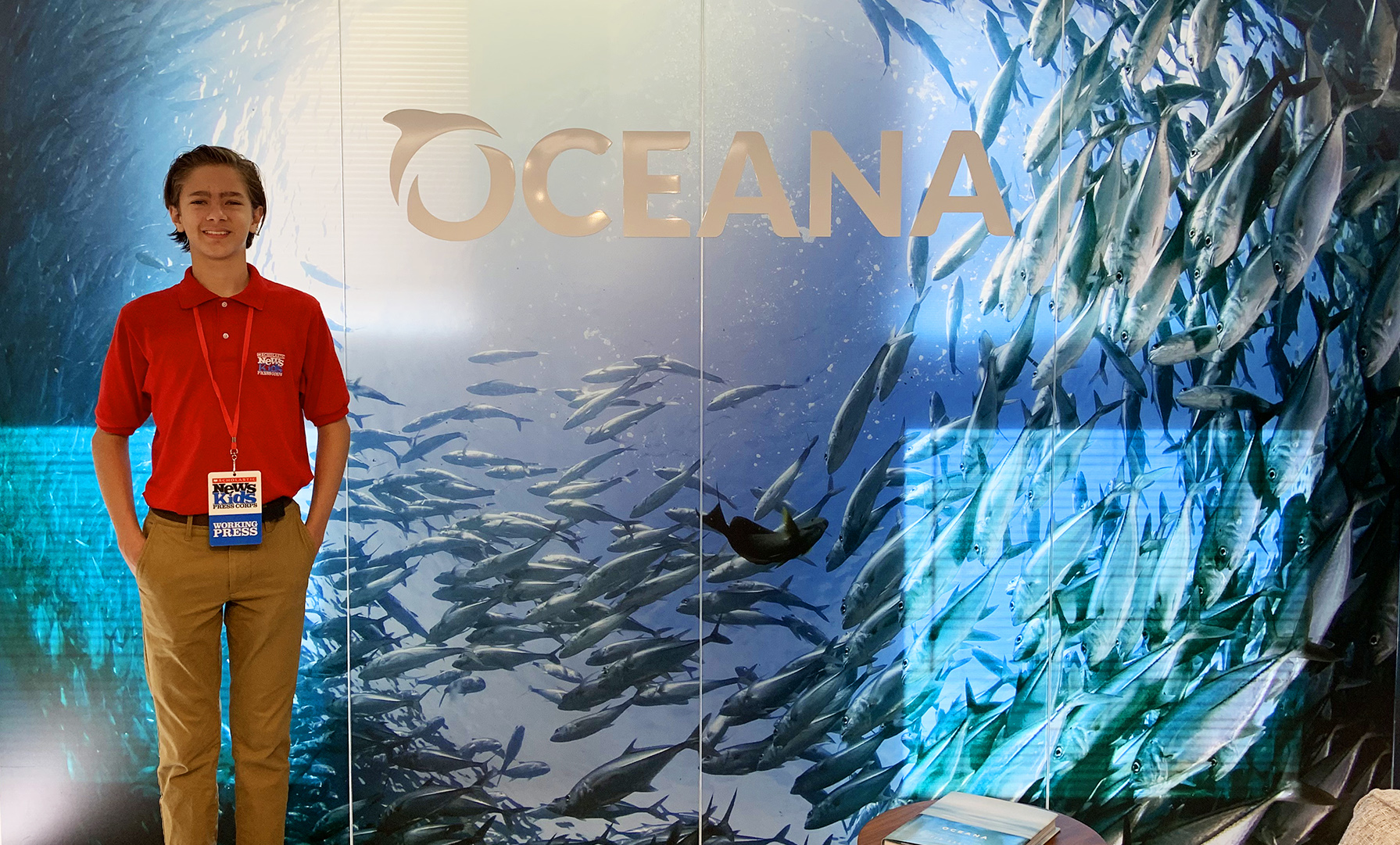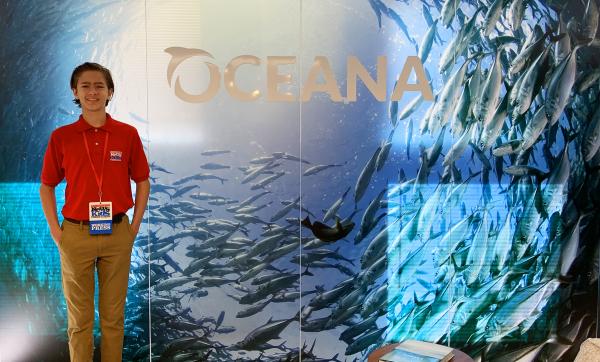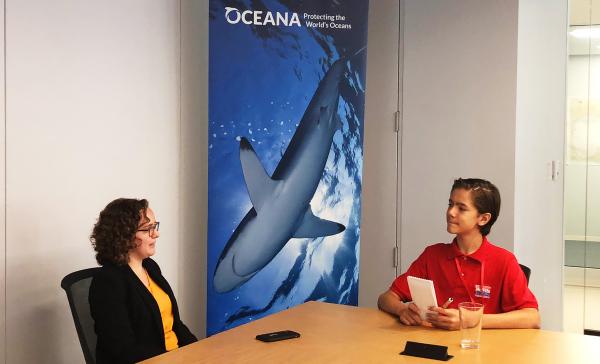KID REPORTERS’ NOTEBOOK
Protecting Sharks and Other Marine Life


Andrew visits Oceana, a nonprofit organization that is dedicated to protecting the world's oceans.
“You’re more likely to be seriously injured by a vending machine than by a shark,” says Mariah Pfleger, a shark biologist for Oceana. “That sounds funny, but statistically, it’s true. Yet we have this perception that sharks are just out to get us, which has made them harder to protect than animals we see as friendly.”
With nearly 100 million sharks seized from the oceans each year, sharks need protection more than ever.
I spoke with Pfleger during a recent visit to Oceana, a nonprofit organization whose headquarters are in Washington, D.C.
Founded in 2001, Oceana focuses on ocean conservation, with offices worldwide. The D.C. headquarters provides proximity to U.S. lawmakers and allows Oceana to inform laws that protect the environment from pollution, overfishing, and habitat destruction.
Oceana has helped guide legislation on everything from “bottom trawling” in sensitive habitats (a practice of dragging large nets across the ocean floor) to protecting sea turtles from commercial fishing gear.

Andrew talks with Mariah Pfleger, a shark biologist at Oceana, at the nonprofit’s headquarters in Washington, D.C.
FINS FOR THE FUTURE
Oceana is also working to stop the sale of shark fins in the United States. Although “shark finning” has been illegal in our waters for years, the U.S. is still a large importer of shark fins, which are mainly used in “shark fin soup.”
Sharks are being taken from the ocean much faster than they can reproduce, and many species are now on the brink of extinction.
“Sharks are extremely important to the ecosystem, and wiping them out could have disastrous effects,” Pflegler said.
The people at Oceana say that the proposed “shark fin ban,” if passed, will allow the world’s shark populations to thrive once again.
“It’s not just for the beauty of it,” said Jacob Ross, an Oceana field campaign fellow. “A restored ocean can feed one billion people a healthy seafood meal every single day, forever. That’s the kind of thing Oceana is fighting for.”
